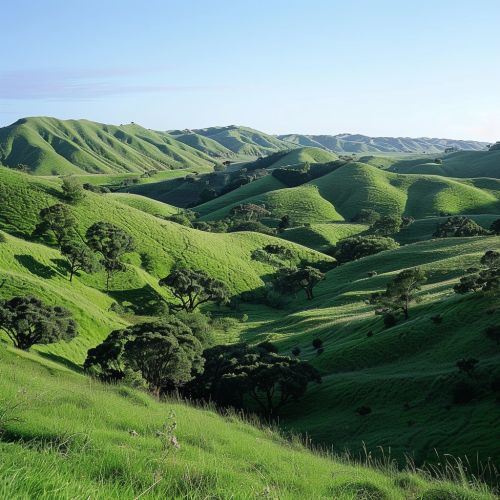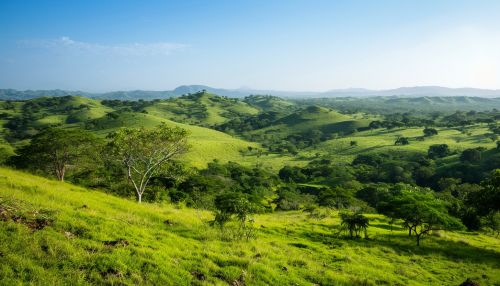Ivory Coast
History
Ivory Coast, officially known as the Republic of Côte d'Ivoire, has a rich and complex history that dates back to prehistoric times. The region was inhabited by various ethnic groups long before the arrival of European explorers. Archaeological evidence suggests that early human settlements existed in the area as far back as 10,000 BCE.
The first significant civilization in the region was the Ghana Empire, which flourished between the 4th and 13th centuries. This empire was known for its wealth and trade, particularly in gold and salt. Following the decline of the Ghana Empire, the Mali Empire and later the Songhai Empire exerted influence over the region.
In the 15th century, Portuguese explorers arrived on the coast, followed by the French in the 17th century. The French established trading posts and gradually expanded their influence inland. By the late 19th century, Ivory Coast became a French colony, and it remained under French control until gaining independence in 1960.
Geography
Ivory Coast is located in West Africa, bordered by Liberia and Guinea to the west, Mali and Burkina Faso to the north, Ghana to the east, and the Atlantic Ocean to the south. The country covers an area of approximately 322,463 square kilometers.
The geography of Ivory Coast is diverse, featuring coastal plains, mountainous regions, and savannas. The southern part of the country is characterized by a tropical rainforest climate, while the northern regions experience a more arid, savanna climate. The highest point in Ivory Coast is Mount Nimba, which reaches an elevation of 1,752 meters.


Economy
Ivory Coast has one of the largest economies in West Africa, driven primarily by agriculture, mining, and manufacturing. The country is the world's largest producer of cocoa beans, accounting for nearly 40% of global production. Other significant agricultural products include coffee, palm oil, and rubber.
The mining sector is also crucial to the economy, with substantial reserves of gold, diamonds, and manganese. In recent years, the discovery of offshore oil and gas reserves has further boosted the country's economic prospects.
The manufacturing sector is diverse, encompassing food processing, textiles, and chemicals. The port city of Abidjan serves as the economic hub of the country, with well-developed infrastructure and a bustling commercial environment.
Demographics
Ivory Coast has a population of approximately 26 million people, comprising over 60 ethnic groups. The largest ethnic groups are the Akan, Krou, Mandé, and Gur. The official language is French, but numerous indigenous languages are also spoken, including Baoulé, Dioula, and Senoufo.
The population is predominantly young, with a median age of around 19 years. Urbanization is increasing, with nearly half of the population living in urban areas. Abidjan is the largest city and serves as the economic and cultural center of the country.
Culture
Ivory Coast has a rich cultural heritage, influenced by its diverse ethnic groups and colonial history. Traditional music and dance play a significant role in Ivorian culture, with each ethnic group having its unique styles and instruments. The country is known for its vibrant festivals, such as the Fêtes des Masques (Festival of Masks) celebrated by the Dan people.
Art and craft traditions are also strong, with Ivorian artisans producing intricate wood carvings, pottery, and textiles. The country has a thriving contemporary art scene, with artists gaining international recognition.
Ivorian cuisine reflects the country's agricultural abundance, with staples such as rice, yams, and plantains. Popular dishes include attiéké (a couscous-like dish made from cassava), kedjenou (a spicy chicken stew), and aloco (fried plantains).
Politics
Ivory Coast is a presidential republic, with the President serving as both the head of state and government. The President is elected for a five-year term and can be re-elected for one additional term. The legislative branch consists of a unicameral National Assembly, whose members are also elected for five-year terms.
The country's political landscape has been marked by periods of instability, including a civil war from 2002 to 2007 and a post-election crisis in 2010-2011. However, recent years have seen efforts to promote reconciliation and democratic governance.
Education
The education system in Ivory Coast is based on the French model, with primary, secondary, and tertiary levels. Primary education is compulsory and free for children aged 6 to 11. Secondary education is divided into two cycles: the first cycle (collège) lasts four years, and the second cycle (lycée) lasts three years.
Higher education institutions include universities, technical institutes, and teacher training colleges. The University of Félix Houphouët-Boigny in Abidjan is the largest and most prestigious university in the country.
Health
Ivory Coast faces significant health challenges, including high rates of infectious diseases such as malaria, HIV/AIDS, and tuberculosis. The country has made progress in improving healthcare infrastructure and access, but disparities remain, particularly in rural areas.
The government has implemented various health programs to address these challenges, including vaccination campaigns, maternal and child health initiatives, and efforts to combat malnutrition. International organizations and NGOs also play a crucial role in supporting the country's healthcare system.
